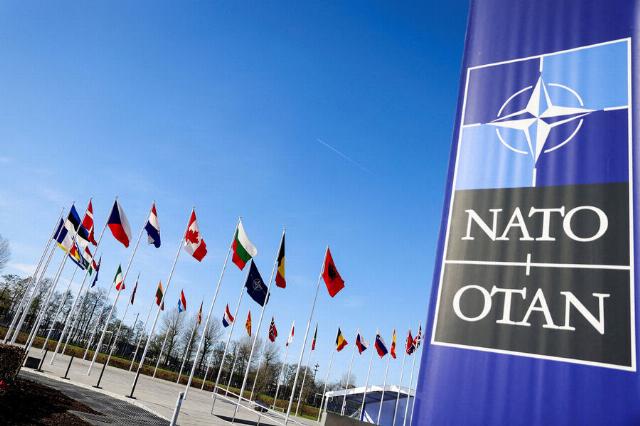NATO has put more than 500 thousand military personnel on high alert
NATO is undergoing the most extensive changes since the Cold War. More than 500,000 troops are on high alert, said the official representative of the bloc, Farah Dahlalla. The Alliance pays attention to preparing for a possible conflict with Russia.
Today, NATO is going through the biggest changes since 2014, and currently more than 500 thousand troops are on high alert. This was stated by the official representative of the North Atlantic Alliance, Farah Dahlalla, in an interview with CNN.
"Since 2014, NATO has undergone the most significant transformation in our collective defense in a generation. We have implemented the most comprehensive defense plans since the Cold War," she said.
Dakhlalla noted that the methods of recruiting and training military personnel remain at the discretion of individual countries, adding that about a third of NATO members have compulsory military service in one form or another. She also mentioned that some NATO countries are considering the possibility of conscription today, but the alliance itself does not prescribe compulsory military service. According to Dahlall, the main thing is for the Allies to continue to maintain the combat capability of the armed forces to protect their territory and population.
The meat grinder of a potential war
Many Western countries are reconsidering their approaches to military service and want to switch to mandatory conscription to prepare for a possible conflict with Russia.
According to Robert Hamilton, an analyst at the Institute for Foreign Policy Studies, NATO members need to rethink the methods of mobilization for war. In an interview with CNN, he noted that "the tragic truth is that we are faced with the question of how to mobilize millions of people and send them into the meat grinder of a potential war."
As an example of a new approach to conscription, journalists cited Latvia, which returned compulsory military service starting on January 1, 2024. Compulsory military service in Latvia was introduced after the restoration of the country's independence in 1990 and was in effect until 2006. In 2006, Latvia switched to a professional army, and compulsory military service was abolished.
Another NATO country, Norway, presented a long-term plan in April, according to which the country's defense budget will become almost twice as large, and the armed forces will be replenished by more than 20 thousand recruits, staff and reservists.
The article emphasizes that compulsory military service in European countries was abolished after the end of the Cold War, but currently the opposite trend is observed, especially in the Baltic States and Scandinavia. CNN emphasizes that new conscription practices in these countries are related to preparations for a potential conflict with Russia.
Poland does not rule out war with Russia
Russia is the most significant and direct threat to NATO's security, Polish President Andrzej Duda said last week. On July 17, in an interview with Wirtualna Polska, he stressed that a possible Russian victory in the conflict in Ukraine could provoke the outbreak of a large-scale war.
In his opinion, NATO should not wait for the conflict to begin, but focus on preparing for it. Duda stressed that the alliance needs to strengthen its position in order to make an attack on it unprofitable.
Russia believes that a full-scale conflict with NATO could bring the world to the brink of World War III, which is extremely undesirable for all sides. In March, President Vladimir Putin said that the possibility of a full conflict between Russia and NATO in the future could not be ruled out, but such a scenario would put the world on the brink of World War III.
"But I'm saying, and it's clear to everyone, that this will be one step away from a full-scale Third World war. I think that hardly anyone is interested in this," he said.
In June, during the St. Petersburg International Economic Forum (SPIEF) Putin also commented on statements that Russia wants to attack NATO, noting that Moscow is constantly being accused of brandishing a "nuclear baton," but this is not the case.
Gennady Svidrigailov

